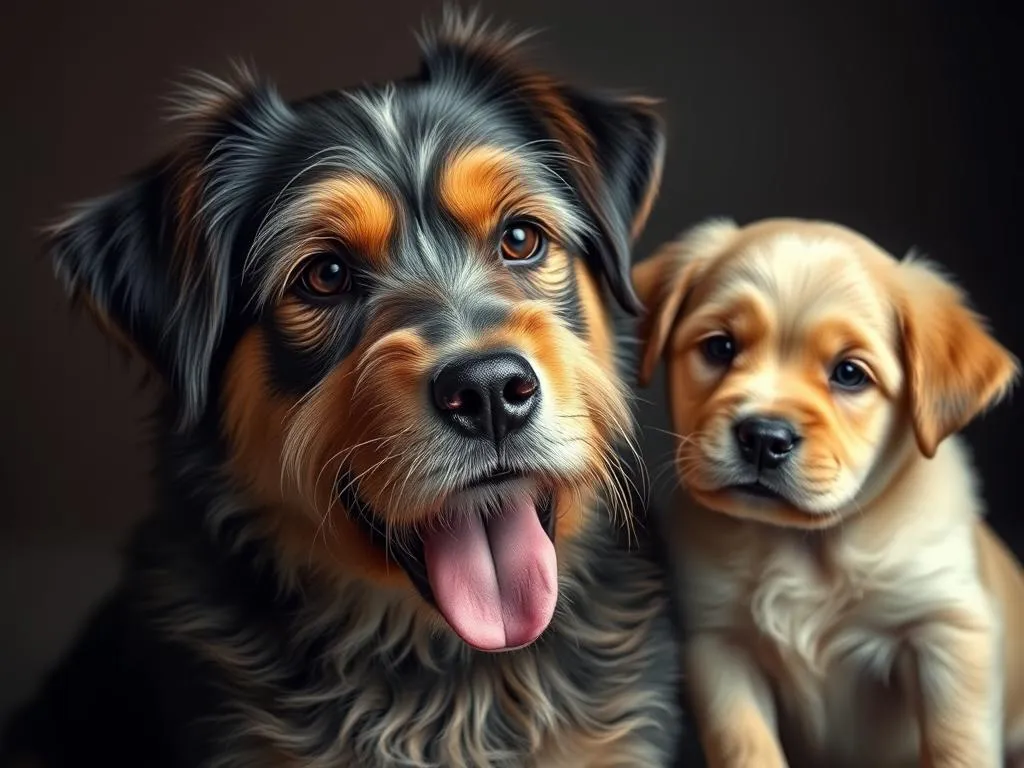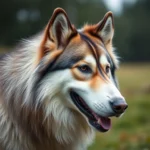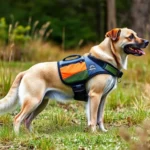
Introduction
The bond between a dog and its offspring is a fascinating subject that encompasses emotional and biological dimensions. Among the many questions that dog owners and breeders ponder, do father dogs recognize their puppies stands out as particularly intriguing. Understanding this aspect of canine behavior is not only significant for those involved in breeding but also for dog owners who wish to foster healthy relationships within their canine families.
This article delves into the emotional and biological aspects of canine recognition, exploring how father dogs interact with their puppies. We will cover the science behind canine recognition, the role of father dogs, factors influencing recognition, current research on the topic, and the implications for dog owners.
Understanding Canine Recognition
What is Canine Recognition?
Canine recognition refers to a dog’s ability to recognize familiar individuals, whether they are humans or other dogs. Dogs perceive their environment through a combination of sight, smell, and sound, which plays a pivotal role in how they form relationships. When it comes to their puppies, father dogs utilize these senses to identify and bond with their offspring.
The Science of Dog Senses
Dogs have an extraordinary sense of smell that is estimated to be 10,000 to 100,000 times more acute than that of humans. This powerful olfactory ability allows them to identify scents that are associated with their puppies, such as the unique scent of their mother during nursing. Additionally, dogs also rely on their acute hearing to recognize the sounds made by their puppies, further enhancing their ability to identify them.
Bonding in Canines
The bonding process between dogs involves more than just recognition; it encompasses emotional connections that develop over time. Factors like scent, early socialization, and the time spent together influence this bonding. For father dogs, the initial interactions with their puppies are crucial in establishing a long-lasting relationship.
The Role of the Father Dog
Biological Instincts
In the wild, dogs exhibit natural instincts that influence their behavior towards their puppies. While mother dogs are primarily responsible for nurturing and caring for their young, father dogs also play a role in the well-being of their offspring. This paternal instinct often manifests in protective behaviors, ensuring that the young ones are safe from potential threats.
Social Dynamics of Dog Packs
Dogs are inherently social animals that thrive in pack dynamics. Within these social structures, every member has a role, including the father. The father dog often holds a position of authority, contributing to the upbringing of the puppies by teaching them social cues and acceptable behaviors. His recognition of the puppies can strengthen his role within the pack, promoting harmony and cooperation.
Recognition Behavior Observed in Father Dogs
Anecdotal evidence suggests that father dogs exhibit specific behaviors towards their puppies that indicate recognition. For example, a father dog may engage in playful interactions with his puppies, respond to their vocalizations, or exhibit protective instincts when they are near. Observations from dog owners and trainers support the idea that father dogs can indeed recognize their offspring.
Factors Influencing Recognition
Early Socialization
Early socialization is critical in determining the level of recognition between father dogs and their puppies. Puppies that grow up in close contact with their fathers are more likely to recognize him later in life. This interaction helps solidify the bond and fosters a sense of familiarity, essential for healthy development.
Scent and Familiarity
Scent plays a vital role in how dogs recognize their offspring. Each dog has a unique scent profile, and puppies are particularly attuned to their father’s smell. This familiarity can trigger recognition, even after a significant period of separation. Scent memory is a powerful tool in the canine world, allowing dogs to form lasting bonds with their family members.
Separation and Reunion
The dynamics of recognition can shift dramatically when father dogs are separated from their puppies. Research indicates that during separation, the bond may weaken, but recognition can still occur upon reunion. Many father dogs display excitement and affectionate behaviors when they encounter their puppies again, suggesting that they can identify them despite the time apart.
Research and Studies
Current Research on Dog Recognition
Recent studies have focused on the mechanics of canine recognition and bonding. Researchers have utilized a variety of methodologies, including behavioral assessments and neuroimaging, to explore how dogs process familiar versus unfamiliar scents and sounds. Key findings indicate that dogs have a remarkable ability to differentiate between familiar and new individuals, shedding light on their recognition capabilities.
Case Studies
Numerous case studies have been conducted to illustrate the recognition behaviors of father dogs. Trainers and behaviorists have documented instances where father dogs demonstrated clear signs of recognition towards their puppies, such as displaying excitement upon seeing them or engaging in nurturing behaviors. These case studies provide valuable insights into the emotional and social dynamics between father dogs and their offspring.
Implications for Dog Owners
Understanding Dog Behavior
Comprehending the nuances of canine behavior is essential for dog owners, particularly when it comes to training and socialization. Recognizing behaviors exhibited by father dogs can enhance the understanding of how to foster healthy relationships between dogs and their puppies. By observing these interactions, owners can create environments that promote bonding and emotional well-being.
Tips for Owners
To enhance the bond between father dogs and their puppies, owners can adopt several practical strategies:
- Encourage Interaction: Facilitate opportunities for father dogs to interact with their puppies through playtime and supervised activities.
- Socialization: Expose puppies to various environments and situations alongside their father to strengthen their bond.
- Scent Familiarization: Allow puppies to become familiar with their father’s scent by providing items that carry his smell, promoting recognition.
- Positive Reinforcement: Reward affectionate behaviors exhibited by father dogs towards their puppies to encourage a nurturing environment.
By implementing these strategies, owners can help forge a lasting bond between father dogs and their puppies, enhancing their overall quality of life.
Conclusion
In summary, the question of do father dogs recognize their puppies is not only fascinating but also crucial for understanding canine behavior. The emotional and biological aspects of recognition highlight the complex relationships that exist within dog families. As we have explored, factors such as early socialization, scent familiarity, and the dynamics of separation and reunion play significant roles in this recognition process.
By fostering an environment that encourages bonding and understanding, dog owners can positively impact the relationships between father dogs and their puppies. Recognizing the unique behaviors and instincts of father dogs allows us to appreciate the depth of canine social structures and the emotional connections that form within them.









